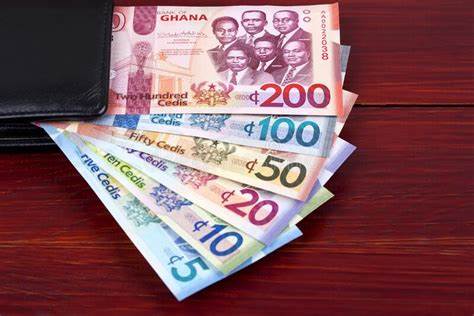The government of Ghana’s Treasury bills have been oversubscribed by GHc174.4 million on June 14, 2021, representing a 14 percentage point higher than the targeted amount of GH¢1.17 billion.
According to the auctioning by the Bank of Ghana, the government of Ghana received bids to the tune of GHc1.34 billion for its 91-day, 182-day and the 364-day T-bills.
However, the bids received were geared towards short term securities. This means more investors are showing interest in the short-term end of the market. Most of them tendered their bids for the three-month or the 91-day bills. The 91-day T-bills subscription alone amounted to GH¢664 million.
Meanwhile, the interest rate, particularly on the 91-day T-bills, which the investors largely subscribed to fell, albeit marginally to 12.63% from 12.71%. Nevertheless, the discount rate for the 91-day remained fixed at 12.25%.
Six-month T-bills
Moreover, the government’s bid for the six-month T-bills was largely oversubscribed due to a relatively higher interest rate. In all, GHc141.63 million bids were tendered for the 182-day bills but the government accepted GH¢136.63 million of the bids tendered. The six-month’s bill was auctioned at 13.42%. Analysts reveal that the rejection of part of the bids by the Central Bank can be attributed to investors lending at a higher rate than what the government is willing to borrow at.
This is a turnaround from the recent mixed developments in the auction of the short term instruments by the Government of Ghana.
Likewise, for the 364-day bill, GH¢539.67 million was auctioned at a rate of 16.33% with the minimum discount rate accepted being 14.04%. Furthermore, all the bids tendered for the 364-day T-bills were accepted totalling GH¢539.67 million. The discount rate perfectly reflects the sale of bills bellow their face values.
T-bills as important debt instruments
Meanwhile, sale of Treasury bills is an important instrument that aids government domestic borrowing. It helps the government to generate short term capital to finance its budget.
In addition, Treasury bills are important financial instrument that helps governments to finance their national debt. Therefore, the recent slump in the targets were major concerns because it could have thrown government’s debt management programme out of gear.
Meanwhile, the cut in the policy rate by the Bank of Ghana by 100 basis point from 14.5% to 13.5%, is likely to sustain the downward pressure on treasury yields in the short-term. This will eventually help the government lower its cost of borrowing in the capital market. This is needed to help the authorities manage the country’s huge debt service burden and a difficult fiscal position.
However, experts believe that if the government continue its borrowing habit from the domestic market at the current rate, there are fears that it may crowd out the private sector’s access to loanable funds.
Furthermore, in the coming weeks, analysts believe that, the Government of Ghana will meet its T-bills target as majority of its short term securities are being bought by the commercial banks.
READ ALSO: Ghana’s Urban Residents have poor access to jobs, healthcare services- Report





















